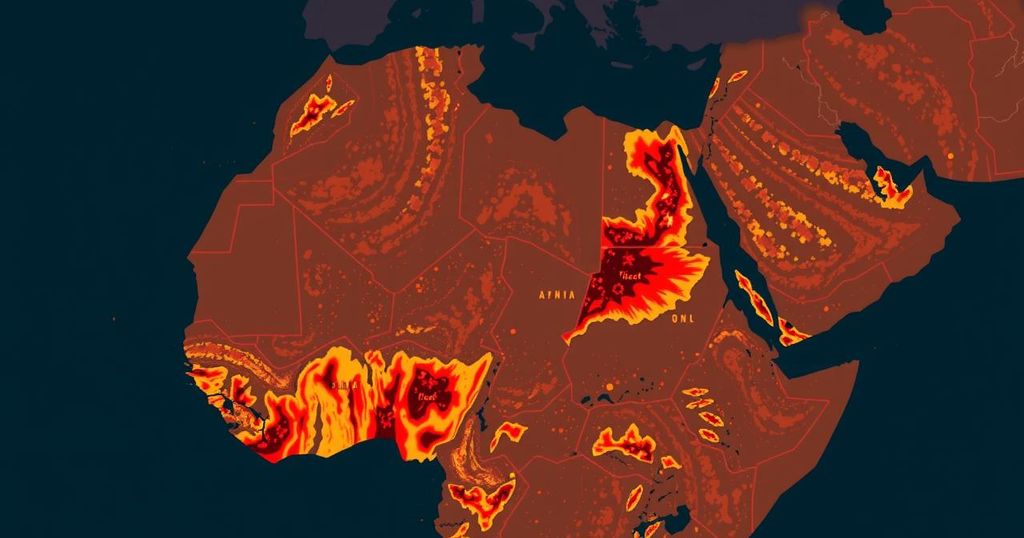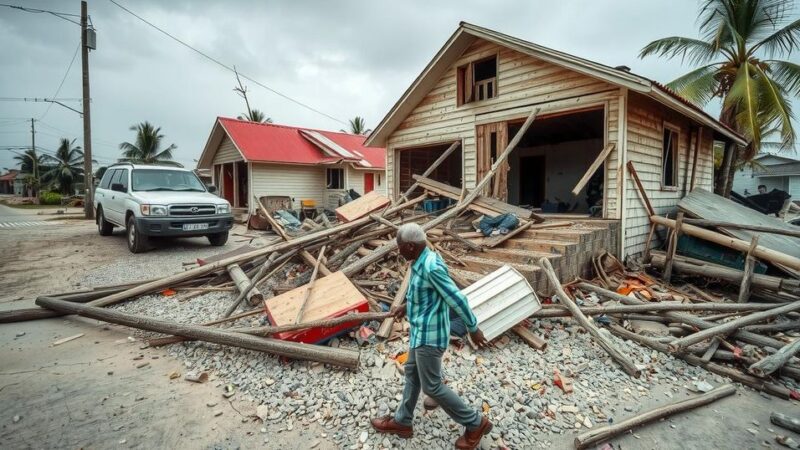Sudan is facing a severe humanitarian crisis due to ongoing warfare and deteriorating healthcare services, prompting increased cases of cholera and dengue fever. Over 28,000 cholera cases have been reported since July, with more than 800 deaths, amidst reports of famine prompted by ongoing fighting and blockades. Major health facilities have closed, complicating efforts to provide care, placing millions at risk.
The ongoing war in Sudan has severely affected urban and rural areas alike, crippling the healthcare system while witnessing a surge in cases of cholera and dengue fever, amid prevailing famine conditions. Reports from the UN Office for the Coordination of Humanitarian Affairs (OCHA) indicate that between 22 July and 28 October, over 28,000 cholera cases were documented, with 836 fatalities across eleven states. The true extent of this outbreak is likely underestimated, as many cases remain unreported. Alongside cholera, the situation concerning dengue fever is also alarming, with increasing cases noted especially in Kassala and Khartoum.
These health crises have been exacerbated by the recent heavy rainfall, which has led to flooding, causing the contamination of drinking water supplies. Kassala emerged as the state most affected, suffering the majority of choleral infections and deaths. In response to the cholera outbreak, Sudanese health authorities initiated a vaccination campaign targeting approximately 1.4 million residents in the hardest-hit regions.
The combined impact of war and health crises has pushed the humanitarian situation to a dire state, with acute food insecurity prevailing, particularly in regions affected by ongoing hostilities. As reported by OCHA, many areas are facing severe hunger due to blockades and fighting, with famished populations in camps like Zamzam, where malnutrition rates are alarming. Additionally, the healthcare system is in disarray, with around 80% of medical facilities rendered nonfunctional due to both violence and supply shortages. Violent attacks against healthcare personnel and facilities have surged, contributing to an environment of fear and instability.
Despite these challenges, humanitarian groups are striving to deliver assistance to the displaced citizens, with reports suggesting that more than 11 million individuals have been internally displaced as a result of the conflict. As the situation unfolds, the urgency for international aid and intervention continues to grow.
The humanitarian crisis in Sudan has escalated markedly since the onset of a civil war in April 2023, leading to significant disruptions in essential services, particularly health. Concurrently, the country is witnessing an alarming spike in waterborne diseases such as cholera and vector-borne diseases like dengue fever, which are further exacerbated by environmental factors including flooding due to unusual rainfall patterns. The conflict has obstructed the provision of humanitarian assistance, triggered widespread malnutrition, and weakened the healthcare infrastructure, leading to a critical need for international support and intervention for the affected populations.
In summary, the war in Sudan has precipitated a catastrophic humanitarian situation characterized by a dramatic increase in cholera and dengue fever cases amidst severe food insecurity. The nation’s healthcare system is faltering under the dual pressures of conflict and disease outbreaks. Humanitarian organizations are tirelessly working to provide relief, but the ongoing violence and blockades severely hinder efforts to assist the millions in dire need. The international community must respond urgently to alleviate the suffering in Sudan and support the restoration of essential health services and provision of food supplies.
Original Source: news.un.org







